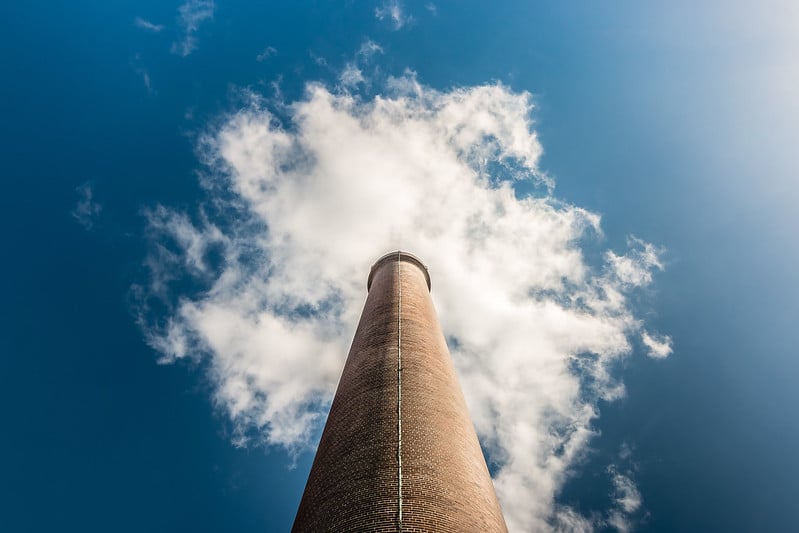A leaked, 4 000-page report from the Intergovernmental Panel on Climate Change (IPCC) shows how significantly climate change will reshape life on Earth in the coming decades, even if greenhouse gas emissions are curbed. It is considered the most comprehensive report on how climate change is upending the world.
—
What is Happening?
- The report outlines some of the devastating impacts of climate change- like species extinction, more widespread disease, unlivable heat, rising sea levels and ecosystem collapse- that are accelerating and are bound to become “painfully obvious” before a child born today turns 30, according to the report. In other words, the impacts will be much closer than most people realise.
- Climate scientists are increasingly concerned that global heating will trigger tipping points in Earth’s natural systems, which will lead to widespread and possibly irreversible disaster, unless urgent action is taken.
- However, while the IPCC is preparing the report to be published in stages this year, most of it will not be published in time for consideration by policymakers at COP26, as it is slated for a full release in February 2022.
- The report warns that previous major climate shocks dramatically altered the environment and wiped out most species, saying, “Life on Earth can recover from a drastic climate shift by evolving into new species and creating new ecosystems…humans cannot.”
You might also like: How Green Are Avocados? Not Very
What Are Tipping Points?
- Tipping points are triggered when temperatures reach a certain level, whereby one impact rapidly leads to a series of cascading events with significant repercussions. For example, as rising temperatures lead to the melting of Arctic permafrost, the thawing soil releases methane.
- Other tipping points include the melting of polar ice sheets and the possibility of the Amazon turning to savannah.
- Previous work by the IPCC has been criticised for failing to take into account tipping points, but the new report is set to contain the body’s strongest warnings yet on the subject, with the draft report detailing at least 12 tipping points. The report says, “The worst is yet to come, affecting our children’s and grandchildren’s lives much more than our own.”
What are the Takeaway Points?
- Early models predicted that Earth-altering climate change was not likely before 2100, but the IPCC draft report says that prolonged warming even beyond 1.5 degrees Celsius could produce “progressively serious, centuries-long and, in some cases, irreversible consequences.”
- For some plants and animals, even 1.5 degrees Celsius of warming will be too late; conditions will change beyond many organisms’ ability to adapt, for example coral reefs, the report says.
- Indigenous populations in the Arctic face cultural extinction.
- A warming world will continue to increase the length of fire seasons, doubling potential burnable areas and contributing to food systems losses.
- Tens of millions more people are likely to face chronic hunger by 2050, and 130 million more could experience extreme poverty within a decade if inequality deepens.
- In 2050, coastal cities will see hundreds of millions of people at risk from floods and increasingly frequent storm surges made more deadly by rising seas.
- Some 350 million more people living in urban areas will be exposed to water scarcity from severe droughts at 1.5 degrees Celsius of warming – 410 million at two degrees Celsius.
- Essentially, current levels of adaptation are inadequate to respond to climate risks.
Bob Ward, the policy and communications director at the Grantham Research Institute on Climate Change and the Environment at the London School of Economics, said: “Scientists have identified several potential regional and global thresholds or tipping points in the climate beyond which impacts become unstoppable or irreversible, or accelerate. They could create huge social and economic responses, such as population displacements and conflict, and so represent the largest potential risks of climate change. Tipping points should be the climate change impacts about which policymakers worry the most, but they are often left out of assessments by scientists and economists because they are difficult to quantify.”
Simon Lewis, a professor of global change science at University College London, said, “The exact timing of tipping points and the links between them is not well understood by scientists, so they have been under-reported in past IPCC assessments. The blunter language from the IPCC this time is welcome, as people need to know what is at stake if society does not take action to immediately slash carbon emissions.”
What Can We Do?
- Conservation and restoration of blue carbon ecosystems- kelp and mangrove forests, for example- enhance carbon stocks and protect against storm surges, as well as providing wildlife habitats, coastal livelihoods and food security
- Transitioning to more plant-based diets could also reduce food-related emissions by as much as 70% by 2050.
- However, the report warns that transformational change is needed at all levels: individual, communities, business, institutions and governments, saying that “we must redefine our way of life and consumption.”
Featured image by: Flickr

















